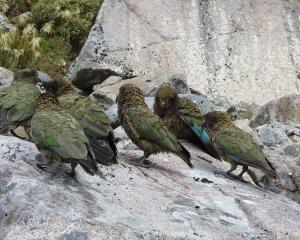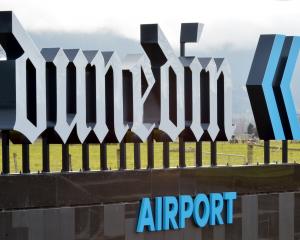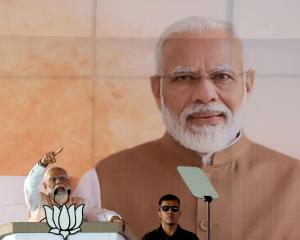The idea of bringing the Football World Cup to New Zealand is simply pie in the sky, Murray Stott writes.
Martin Snedden's comments on aspiring to bring the Football World Cup to New Zealand, appear to be a simple kite-flying exercise.
Firstly, Mr Snedden by himself has never presented anything. He has was, however, the CEO of the government-backed Rugby World Cup 2011, which was by all accounts an outstanding success. Therefore, he is adept at organising major events with other people's money.
Now as CEO of one of the nation's most creative and successful promotion companies, Duco Events (pricey raves and dinner events: Clinton, Blair, Geldof, boxing - where it has cleaned
up from pay-per-view - NRL nines, et al), he and the company could well be looking for a new government-funded horse to ride.
And, in the interim, as the pitch for the cup believed to be for either 2026 or 2030, feasibility studies and negotiations with the key stakeholders would certainly absorb tens of millions dollars.
Australia itself invested a reported $A65 million on such reports, only to be be rejected from the murky world of Fifa's cutthroat ''negotiations''.
Impresarios and event organisers alike traditionally appear to suffer from something of an obsessive compulsive disorder compelling them to always top their last great gig.
In Barnum and Bailey circus tradition, they present next-up as bigger and brighter than their last show. They often ignore prudent caution that bigger and brighter can equal bust.
Local taxpayers would be required to stump up more than they can reasonably afford to stage the cup, even sharing the 32 matches with Australia.
The Cricket World Cup provided an excellent working example of how such joint staging worked well. However, it, the Rugby World Cup, the NRL nines and the Fifa under-20s are indeed only small beer compared with the Fifa World Cup.
There, costs run into billions of dollars for questionable return on investment.
A standard business Swot analysis (strengths, weaknesses, opportunities and threats) of Fifa World Cup prospects would reveal early in the process we lack the merit and/or mass factors to underwrite the desired event with sponsorship or the usual cut of gate and pay-per-view revenues.
When we plot the projected GDP of past host nations for 2030, both Australia and New Zealand appear too small, or otherwise disadvantaged.
By 2030, Australia's GDP is expected to be $US1.7 trillion and New Zealand's $400 billion (at present under $300 billion). By comparison, other estimated 2030 GDPs are United States $US24.8 trillion, China 22.2, India 6.6, Japan 6.4, 4.5 Brazil, 4 and UK, France, Canada, Russia, Italy and Mexico an average of 2.2 trillion.
Clearly, former host nations and those rated on a merit mass indicator have far greater fiscal resources from which to fund the staging of the World Cup, or the pre-staging fight for it.
Qatar, for example, was awarded the event for 2018, on the back of its undertaking to invest more than $100 billion in the event.
Further, when plotting the likelihood of the global-consumer heavyweight sponsors' ability to keep driving their investments upwards, then the lack of critical mass, geographical isolation, different time zones and television footprints also present barriers to entry, along with
the intended joint hosts not primarily being soccer nations. The rationale based on existing stadia (devoid of facial recognition entry control) and recent results in staging sporting events remains flawed.
The scale is such that partners such as adidas, Coca-Cola, Sony, Hyundai, Emirates and Visa could conceivably be up for a combined spend of $1.4 billion ($730 million in 2014) to $2 billion by the 2030 event.
Any event promoter or government minister who considers we have any economic chance of staging either the World Cup or Formula 1 is probably suffering from a condition similar to Solipsism Syndrome: a condition commonly suffered by astronauts who lose all sense of reality caused by prolonged periods of weightlessness.
Murray Stott is a trademark agent and sponsorship broker.












